Using 3-D printers to make artificial limbs
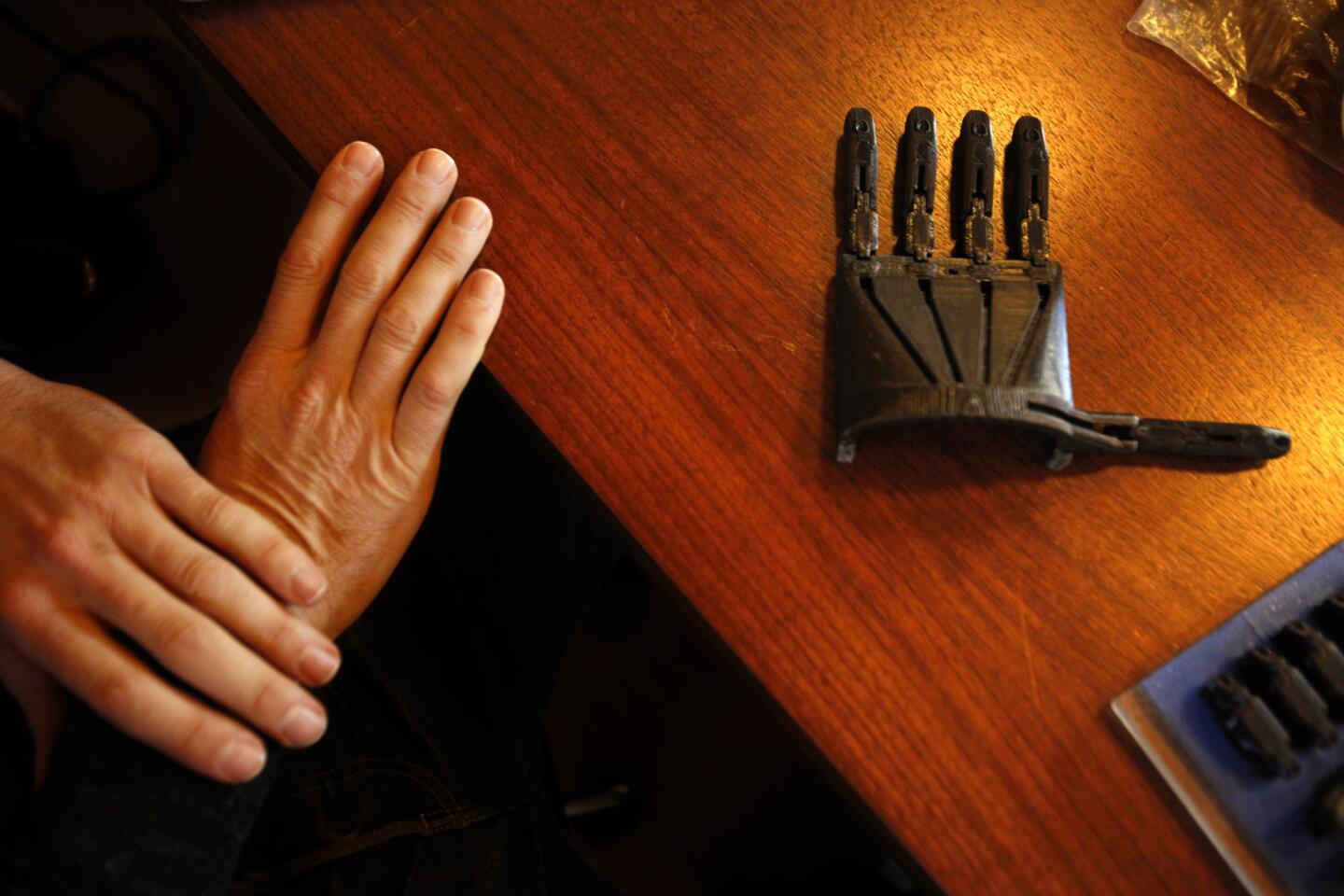
Mick Ebeling, founder and chief executive of Not Impossible, rests his hands next to a prosthetic hand he created with a 3-D printer at his office in Venice. Besides making prostheses, the group developed EyeWriter, a pair of glasses affixed to a Web camera that enables people to draw on a computer with their eye movements. (Genaro Molina / Los Angeles Times)
Mick Ebeling has created Not Impossible, which uses 3-D printers to make prostheses. In one case, the Venice Beach organization flew one of the printers to Sudan and taught victims of the civil war to print their own artificial limbs using free software.
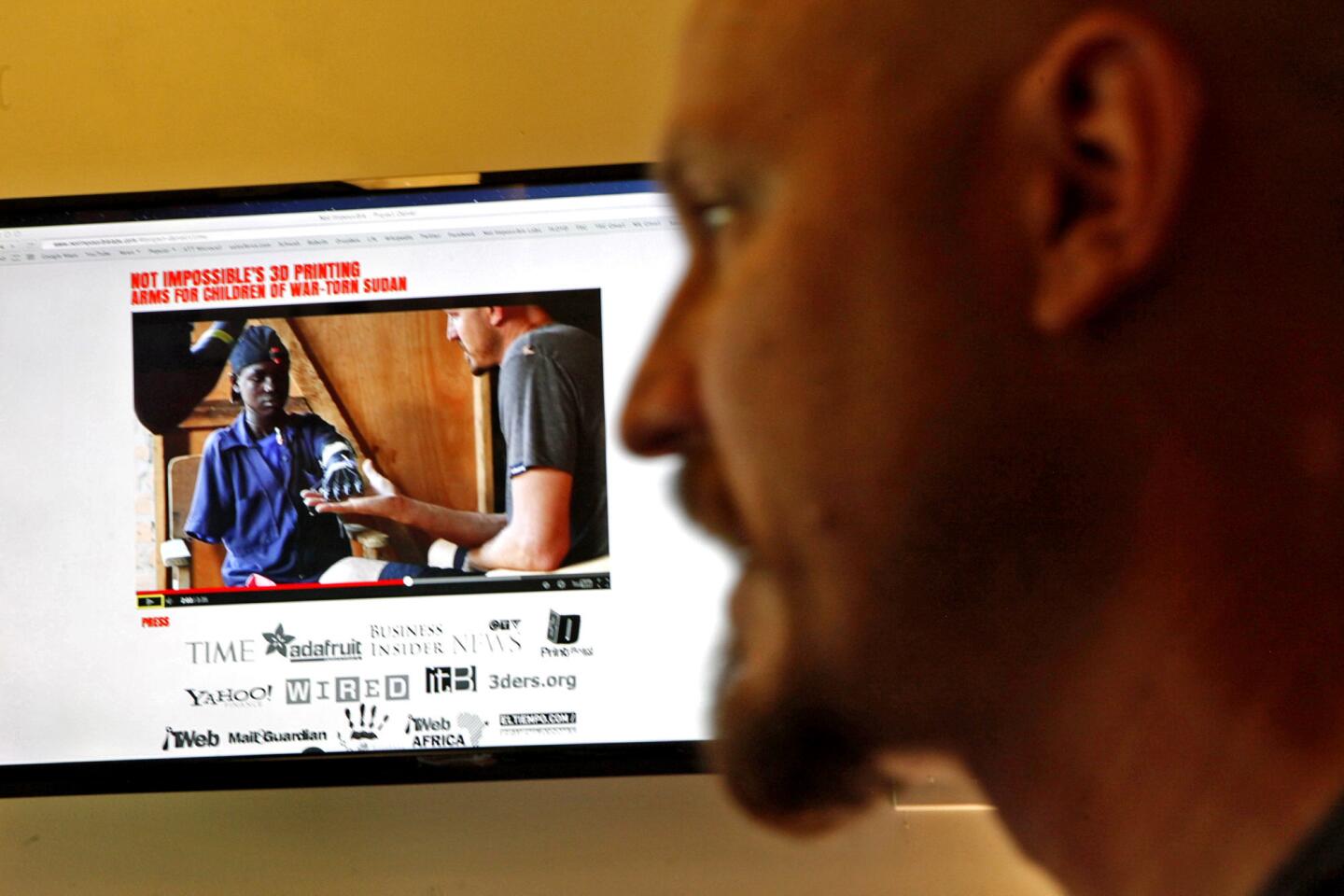
Mick Ebeling, founder and chief executive of Not Impossible, watches a film that features him fitting a prosthetic arm on Daniel Omar, a 16-year-old victim of the civil war in Sudan. (Genaro Molina / Los Angeles Times)
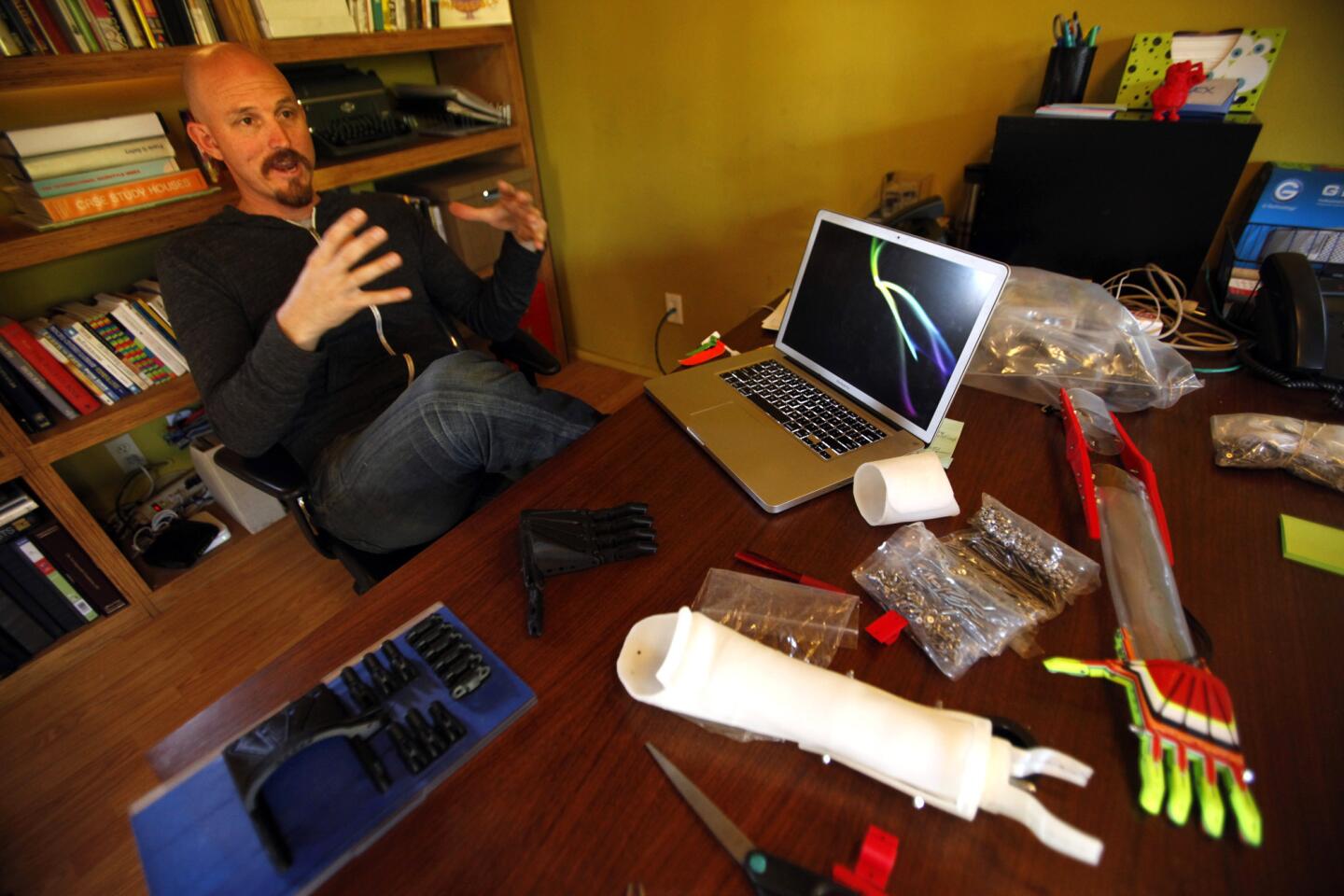
Mick Ebeling, founder and chief executive of Not Impossible, at his desk with prosthetic arms and hands that he created with his 3-D printer at his office in Venice. Ebeling is the unlikely leader of a team dedicated to tackling the physical limitations that arise from conditions such as blindness and paralysis. (Genaro Molina / Los Angeles Times)
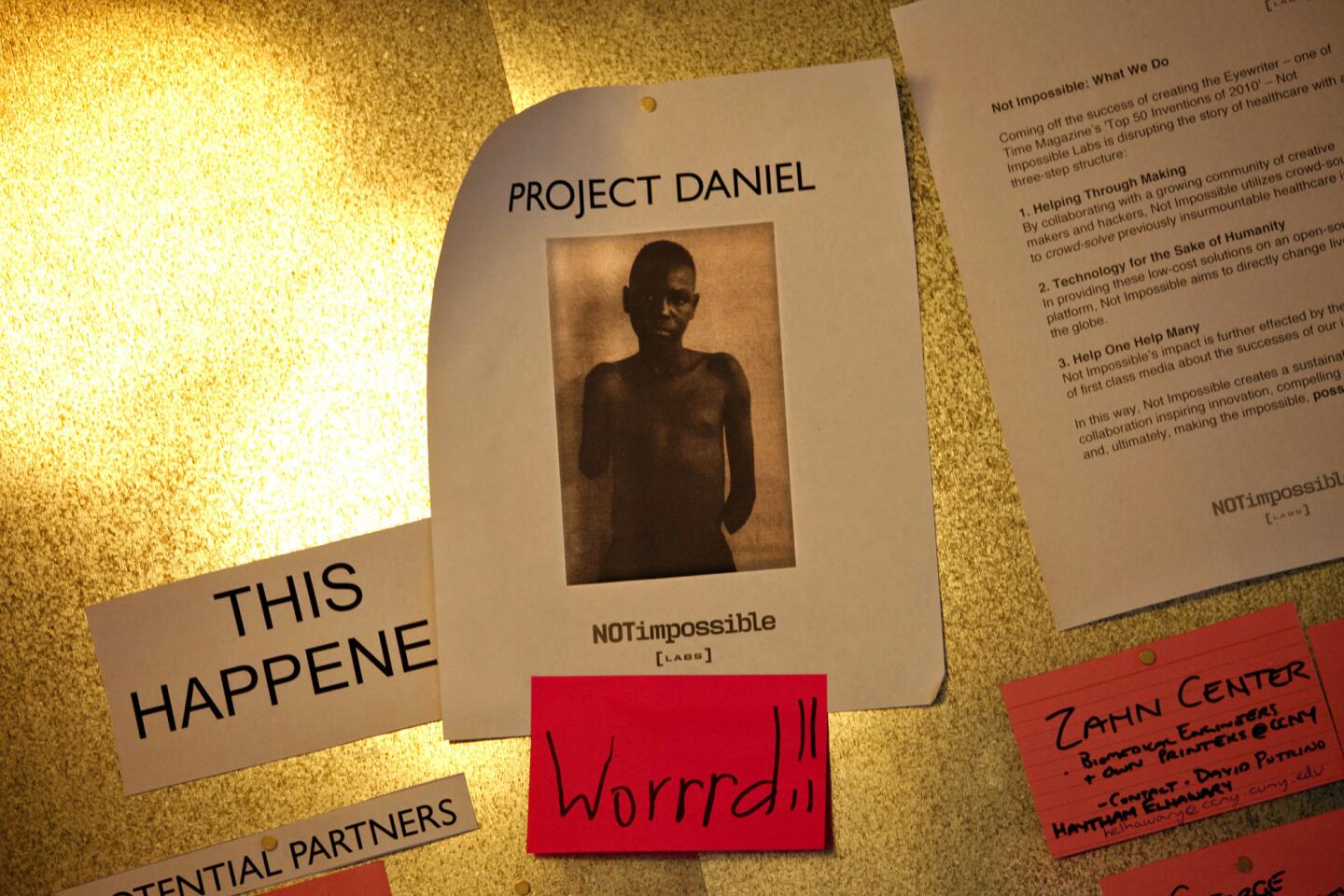
A photo of Daniel Omar, a victim of the civil war in Sudan who received an artificial arm from Not Impossible, hangs on the bulletin board of the group’s office in Venice. (Genaro Molina / Los Angeles Times)
Advertisement
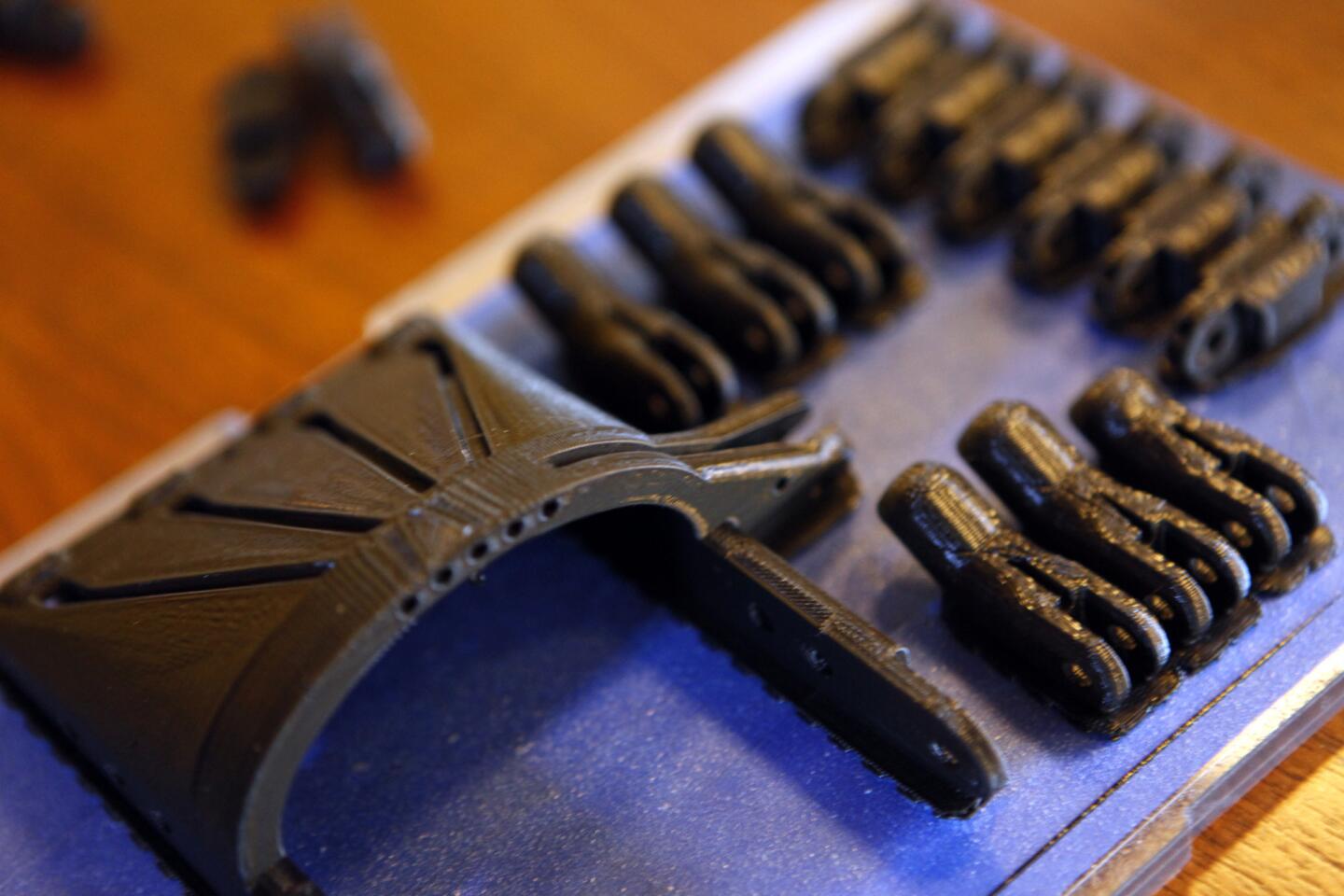
Parts of a prosthetic hand were created by a 3-D printer at the offices of Not Impossible in Venice. The group’s volunteers are developing medical devices such as the BrainWriter, which reads brain waves and eye movements to engage and disengage a computer mouse. (Genaro Molina / Los Angeles Times)
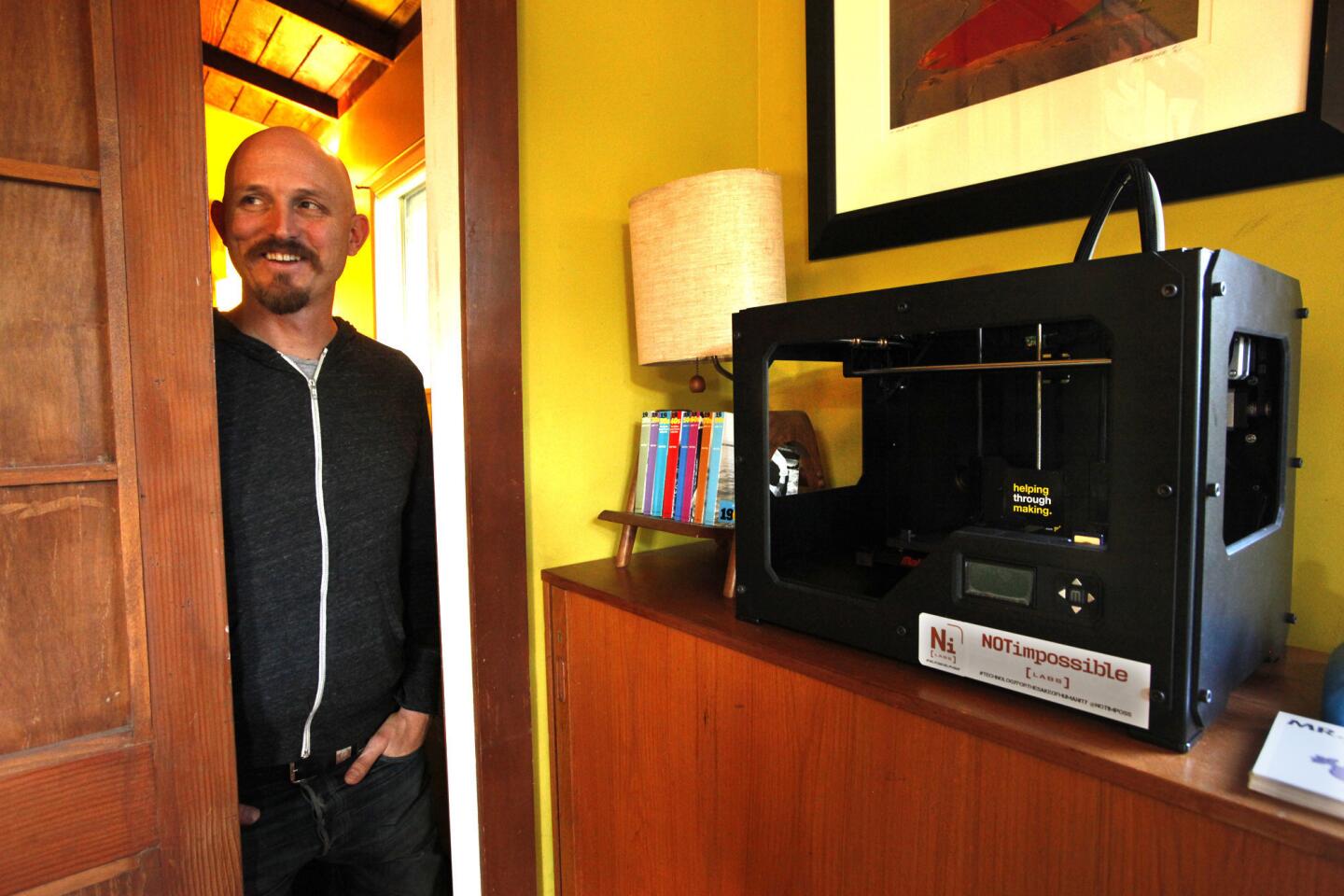
Mick Ebeling with a 3-D printer at the Venice office of Not Impossible. Ebeling, a Hollywood producer, is the group’s ideas guy. He comes up with a concept but then leans on others with more expertise to execute it. (Genaro Molina / Los Angeles Times)
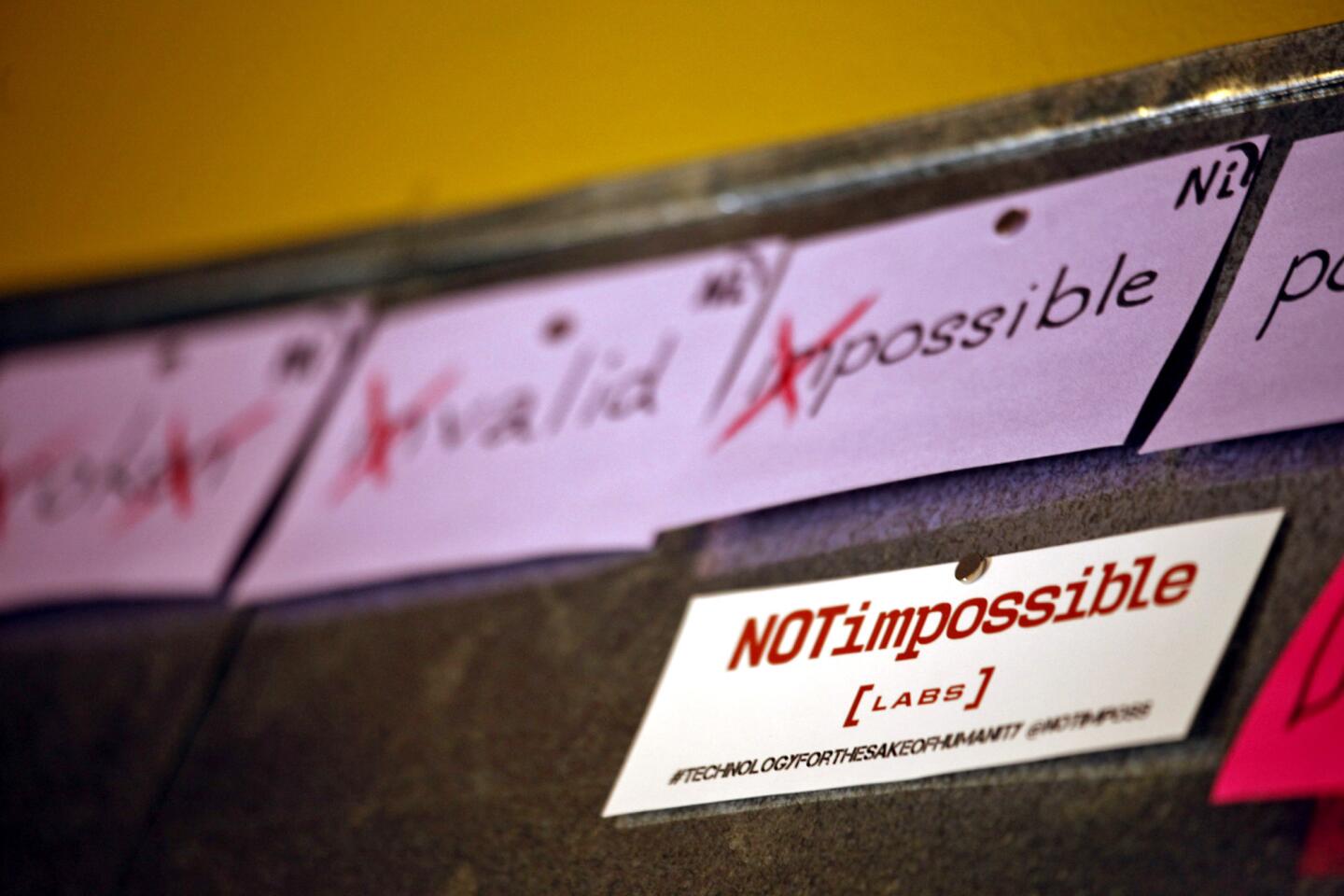
A bulletin board features positive words in the offices of Not Impossible in Venice. (Genaro Molina / Los Angeles Times)
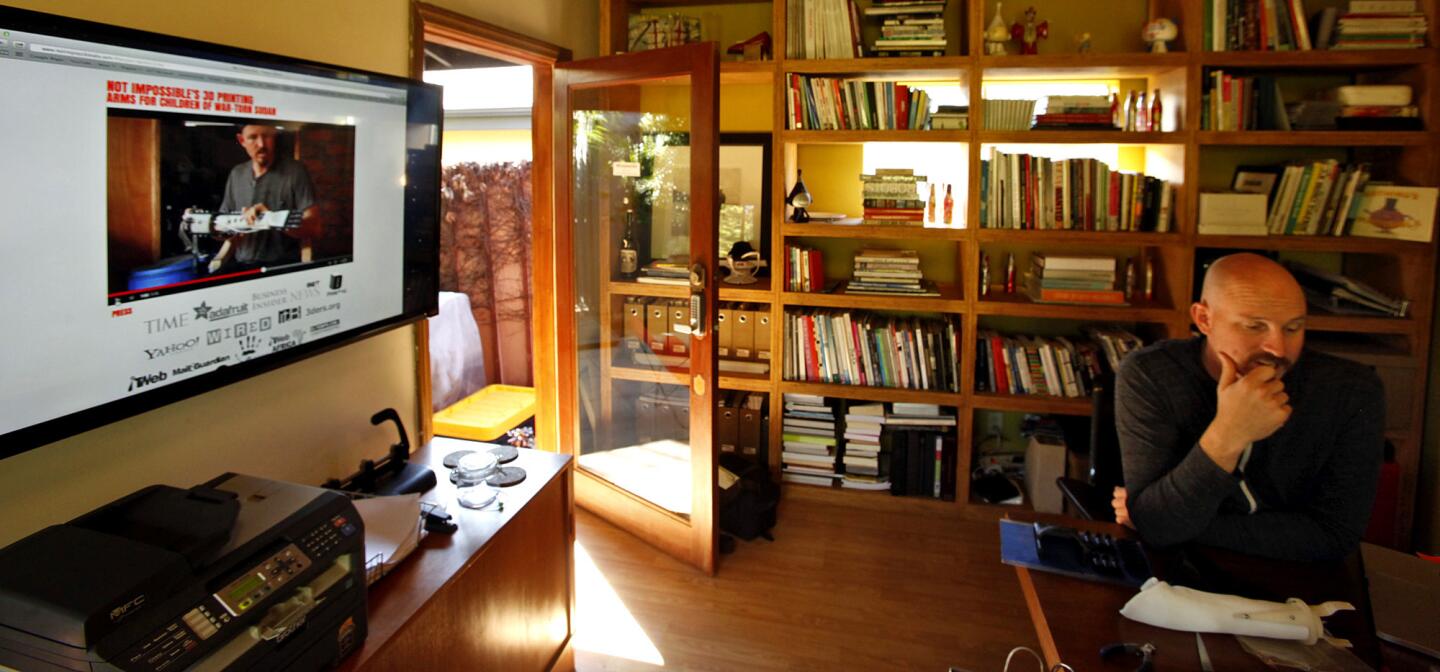
Mick Ebeling sits at his desk next to a prosthetic arm that he created with a 3-D printer at Not Impossible’s office in Venice. The screen at left shows a video of him holding a prosthetic arm that was fitted onto a victim of the civil war in Sudan. (Genaro Molina / Los Angeles Times)







